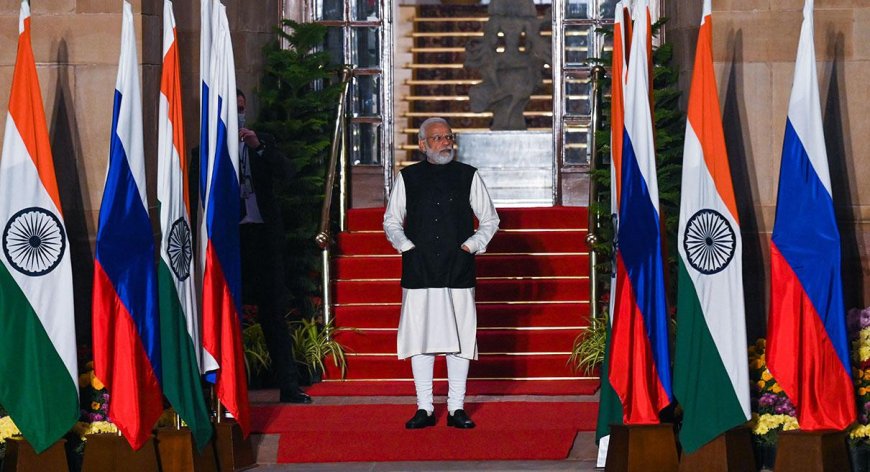A New World Order: India's Rising Influence Amid the Russia-Ukraine Conflict

By: A. Mahdavi
India’s Prime Minister Narendra Modi’s visit to Kyiv marks a significant moment in global diplomacy, particularly as the war between Russia and Ukraine continues to escalate. Since Ukraine gained independence in 1991, this visit stands as a symbolic gesture from a country that has traditionally maintained neutrality in global conflicts. Before his departure, Modi made clear that India’s mission is for peace and that his country aims to mediate in global conflicts, including the war in Ukraine, thus, striking a delicate balance in a deeply divided international order.
The timing of Modi's visit adds another layer of complexity to India's global position. Just a month earlier, the Indian leader was in Moscow, reaffirming New Delhi's historical ties with Russia. During that visit, Modi referred to President Vladimir Putin as an "important friend," a statement that diplomatic circles closely monitored. However, a few weeks later, India's Western allies, including the United States, have warmly welcomed his visit to Kyiv. This swift shift in diplomatic engagement underscores India’s evolving role on the global stage as it seeks to maintain relationships with both Russia and the West.
One of the key factors influencing India's approach to the conflict is its dependence on Russian energy. Currently, Russia supplies more than 40% of India’s oil, as well as significant amounts of coal. Despite the ongoing sanctions imposed by the West on Russia, India has continued to procure energy from Moscow. Ukrainian President Volodymyr Zelensky has openly criticized this, suggesting that by continuing to buy Russian oil, India is indirectly supporting Russia’s war efforts. However, India's decision to continue these purchases stems from economic necessity rather than political alignment. India's rapidly growing economy requires reliable and, above all, cheap energy supplies, a need that Russia has consistently been eager to meet.
Simultaneously, India has established robust strategic connections with its Western adversaries, particularly the United States. Western governments have increasingly positioned India as a counterbalance to China’s growing influence, offering economic and diplomatic partnerships. This dynamic has allowed India some leeway in maintaining its energy relationship with Russia, despite Western sanctions. India's role as a potential economic rival to China and a country that can help limit Russia's dependence on Beijing holds significant strategic importance for the West.
India’s diplomatic efforts are not without their challenges. During his visit to Kyiv, Modi reiterated India’s commitment to peace and warned that the war would not only harm Ukraine but have far-reaching global consequences. In theory, India could step into the role of a mediator, but the reality is far more complicated. Ukraine remains cautious about India’s involvement, given Kiev’s close ties to Western nations and its alignment with Western policies. India’s non-aligned stance, representing a voice from the Global South that emphasizes diplomacy and peaceful resolution, resonates with many non-Western countries but may not align with Western approaches to the conflict.
Ukraine’s concerns about India’s potential role as a mediator stem from its close ties with Russia. Kyiv fears that any mediation by India may result in concessions favorable to Moscow, which Ukraine is unwilling to accept. As a result, Ukraine prefers that peace negotiations occur within a Western framework, supported by its Western allies. This presents a dilemma for India, which seeks to contribute to peace efforts but faces resistance from one of the key parties involved.
Modi’s visit to Kyiv, therefore, goes beyond diplomacy—it represents a calculated démarche aimed at reassuring the West’s reliability as a partner. Simultaneously, it positions India to play a substantial role in Ukraine’s post-war reconstruction, further enhancing its standing on the global stage. However, India must navigate these waters carefully, balancing its long-standing ties with Russia and its growing partnerships with the West.
In the broader context, this visit signals India’s increasing involvement in global affairs, a move that brings both opportunities and challenges. In the coming years, India's choices will shape its role in the international system and its relationships with key global powers. As India steps more prominently onto the world stage, the world will closely watch its next moves.













































